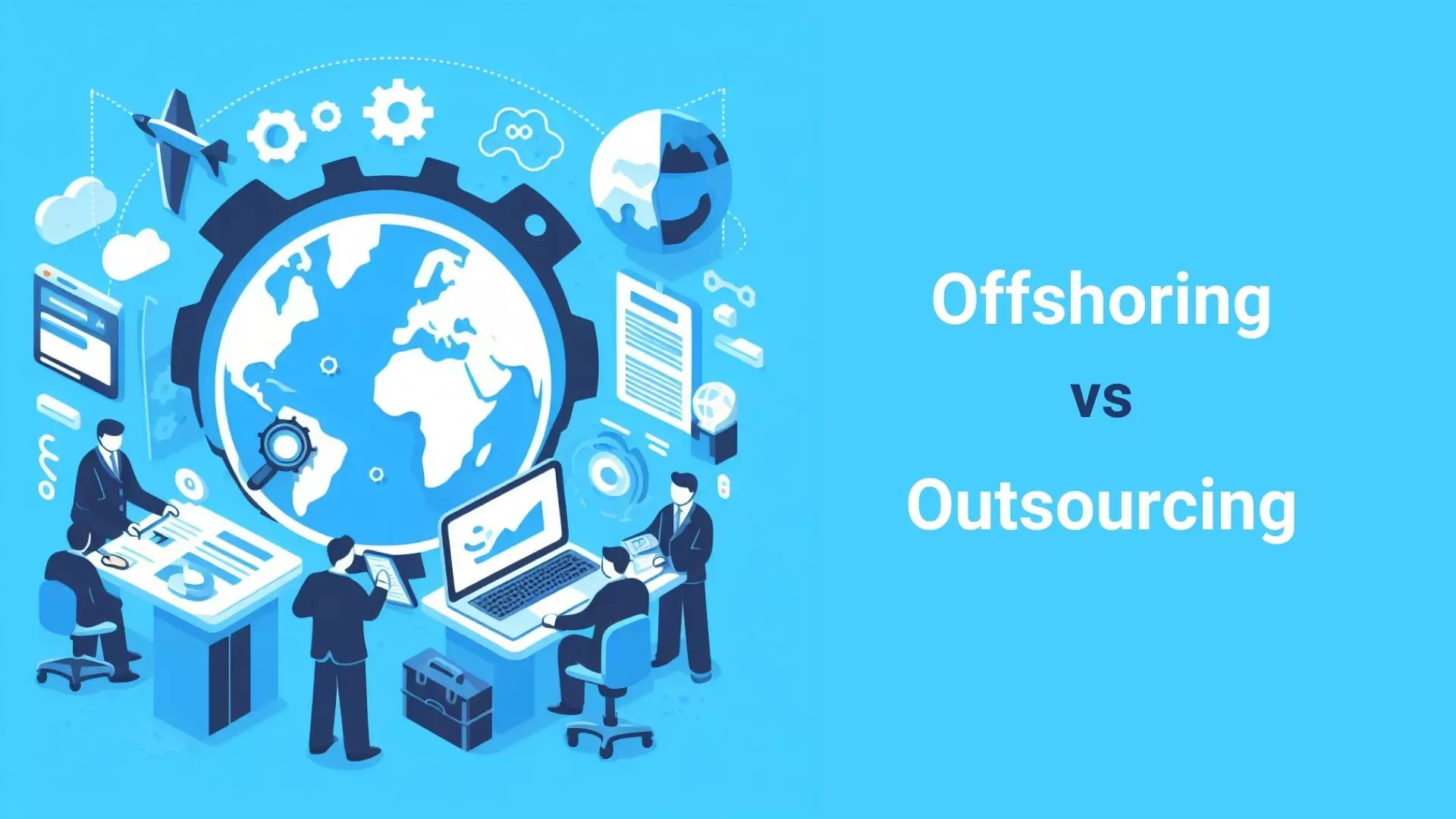
Application Outsourcing
In the competitive landscape of modern business, companies are continually seeking ways to enhance their efficiency and reduce costs while maintaining a high standard of service. Application outsourcing has emerged as a critical strategy to achieve these goals. This blog explores why application outsourcing is vital for contemporary businesses, its benefits, and the challenges associated with it.
The Importance of Application Outsourcing
Application outsourcing involves delegating the management and maintenance of software applications to third-party service providers. This strategy allows companies to focus on their core competencies while leveraging the expertise and resources of specialized IT firms. In an era where technology evolves rapidly, outsourcing provides businesses with access to cutting-edge solutions without the burden of constant investment in new technologies.
Benefits of Application Outsourcing
In today’s fast-paced business world, maximizing efficiency and optimizing resources is crucial. Application outsourcing, where you delegate software development tasks to a specialized external company, offers a compelling solution. Here’s a breakdown of some key benefits:
Cost Efficiency
Outsourcing application development and maintenance can significantly reduce operational costs. Companies save on salaries, training, infrastructure, and technology upgrades. Instead, they pay for the specific services they need, often at a lower cost than in-house development.
Access to Expertise
Outsourcing firms employ skilled professionals who specialize in various aspects of software development and management. This expertise ensures that the applications are developed using the best practices and latest technologies, enhancing their quality and performance.
Focus on Core Business
Companies can focus on their primary business objectives by outsourcing non-core activities like application development. This focus can lead to better product or service quality, increased customer satisfaction, and higher overall efficiency.
Scalability and Flexibility
Outsourcing provides businesses with the flexibility to scale their IT resources up or down based on their needs. This scalability is particularly beneficial for companies experiencing rapid growth or seasonal fluctuations in demand.
Risk Management
Managing and maintaining applications internally can expose companies to various risks, including data breaches, downtime, and compliance issues. Outsourcing shifts some of these risks to the service provider, who often has better risk management protocols and security measures in place.
Challenges of Application Outsourcing
Outsourcing application development can be a strategic move, offering benefits like cost savings and access to a wider talent pool. However, it’s not without its hurdles. Here’s a breakdown of some key challenges to consider:
Communication Barriers
Working with an external team, especially one that may be located in a different time zone or country, can pose communication challenges. Clear communication protocols and regular updates are essential to mitigate these issues.
Quality Control
Ensuring that the outsourced application meets the company’s quality standards can be challenging. It requires rigorous monitoring and regular performance assessments to ensure the service provider adheres to the agreed-upon standards and timelines.
Dependency on Service Providers
Relying heavily on external providers can make a company dependent on them for critical operations. It’s crucial to choose a reliable provider and have contingency plans in place to handle any disruptions in service.
Data Security Concerns
Outsourcing involves sharing sensitive data with third parties, which can raise security concerns. It is vital to ensure that the service provider has robust data protection measures and complies with relevant regulations.
Current Trends in Application Outsourcing
As technology and market demands evolve, new trends in application outsourcing are shaping companies’ approaches to this strategy. Let’s explore the key trends in application outsourcing for 2024 and how they are impacting the industry.
Rise of Artificial Intelligence and Automation
One of the most significant trends in application outsourcing is the increasing use of artificial intelligence (AI) and automation. AI-driven tools and automated processes are being integrated into outsourcing services to improve efficiency, reduce errors, and provide better insights. These technologies can handle repetitive tasks, allowing human resources to focus on more strategic activities.
For instance, automated testing tools can speed up the development process by identifying bugs and performance issues more quickly than manual testing. AI can also enhance customer support services by providing intelligent chatbots that can handle a large volume of queries without human intervention.
Focus on Cybersecurity
As cyber threats become more sophisticated, the demand for robust cybersecurity measures in application outsourcing is rising. Companies are increasingly outsourcing their cybersecurity needs to specialized providers who have the expertise and resources to protect against cyberattacks. This includes services like continuous monitoring, threat detection, and incident response.
Outsourcing cybersecurity helps businesses stay ahead of potential threats without the need to build and maintain an in-house team of security experts, which can be costly and resource-intensive.
Emphasis on Data Analytics
Data analytics is playing a crucial role in application outsourcing. Companies are seeking outsourcing partners that can provide advanced data analytics services to help them make informed decisions. This trend is driven by the need to harness the vast amounts of data generated by applications to gain insights into customer behavior, operational efficiency, and market trends.
Outsourcing data analytics allows businesses to leverage the latest tools and techniques without investing heavily in infrastructure and talent. It also enables them to turn data into actionable insights more quickly and efficiently.
Growth of Cloud-Based Solutions
The adoption of cloud-based solutions in application outsourcing is accelerating. Cloud computing offers flexibility, scalability, and cost savings, making it an attractive option for businesses looking to outsource their application development and management. Cloud-based outsourcing allows companies to access applications and data from anywhere, facilitating remote work and collaboration.
Providers of cloud-based outsourcing services offer a range of solutions, from infrastructure as a service (IaaS) to software as a service (SaaS), enabling businesses to choose the model that best fits their needs.
Increased Focus on Agile and DevOps Practices
Agile and DevOps methodologies are becoming standard practices in application outsourcing. These approaches promote continuous development, integration, and deployment, leading to faster application delivery and improved quality. Outsourcing partners that adopt Agile and DevOps can offer more flexible and responsive services, helping businesses adapt quickly to changing market conditions.
By implementing Agile and DevOps, outsourcing providers can ensure that applications are continuously updated and improved, resulting in better performance and user satisfaction.
Nearshoring as a Preferred Outsourcing Model
Nearshoring, the practice of outsourcing to neighboring or nearby countries, is gaining popularity over traditional offshoring. This trend is driven by the need for better communication, cultural alignment, and time zone compatibility. Nearshoring offers several advantages, including shorter travel times for face-to-face meetings, similar working hours, and often a better understanding of regional market dynamics.
Companies are increasingly turning to nearshore to reduce the risks and challenges associated with offshoring, such as language barriers and significant time zone differences.
Sustainability and Ethical Considerations
Sustainability and ethical considerations are becoming important factors in application outsourcing decisions. Businesses are looking for outsourcing partners that prioritize environmentally friendly practices and ethical labor standards. This trend is driven by growing consumer awareness and regulatory requirements related to sustainability and corporate social responsibility.
Outsourcing providers that demonstrate a commitment to sustainability and ethical practices can differentiate themselves in the market and attract clients who share these values.
Conclusion
Application outsourcing is a strategic move that can offer significant benefits to businesses, including cost savings, access to expertise, and enhanced focus on core activities. However, it is not without its challenges. Effective communication, rigorous quality control, and robust security measures are essential to maximize the benefits of outsourcing while mitigating its risks. By carefully selecting reliable service providers and establishing clear protocols, businesses can harness the full potential of application outsourcing to drive growth and innovation.













